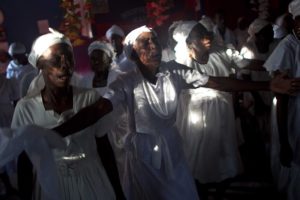Oversimplification 3, 2, 1
From Andrew Khouri’s “Getting the Story Right in Egypt,” a recent post at The Scoop, Diane Winston’s website at USC’s Annenberg School for Journalism:
But on Thursday, the Muslim Brotherhood—Egypt’s largest opposition group and a perennial Mubarak foe—announced it would join the large demonstrations that were planned after prayers on Friday. A Muslim Brotherhood spokesman called it “the day of the intifada.”
That is how an article appearing in Friday’s New York Times set the stage for what was no doubt a pivotal moment in Egypt, with thousands taking to the street, where they would face tear gas and baton-wielding security forces. The piece examined how religious factions, which have played little role so far, would affect the protest movement.
Cue oversimplification of religion in 3, 2, 1…

